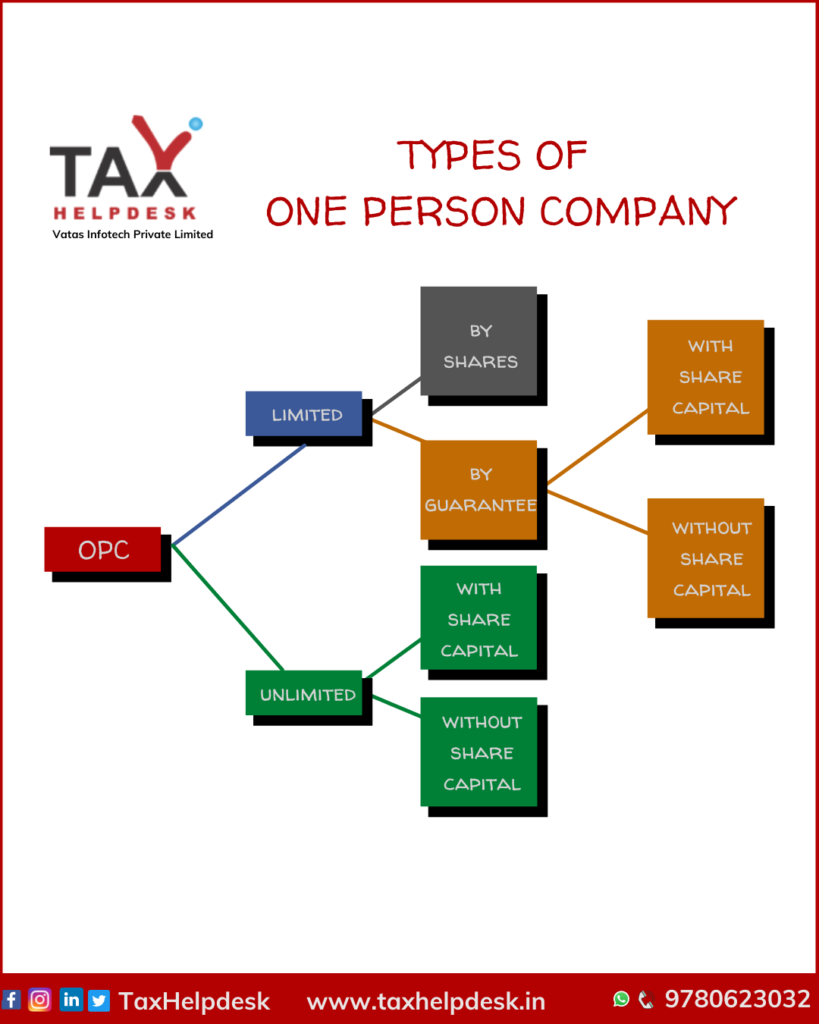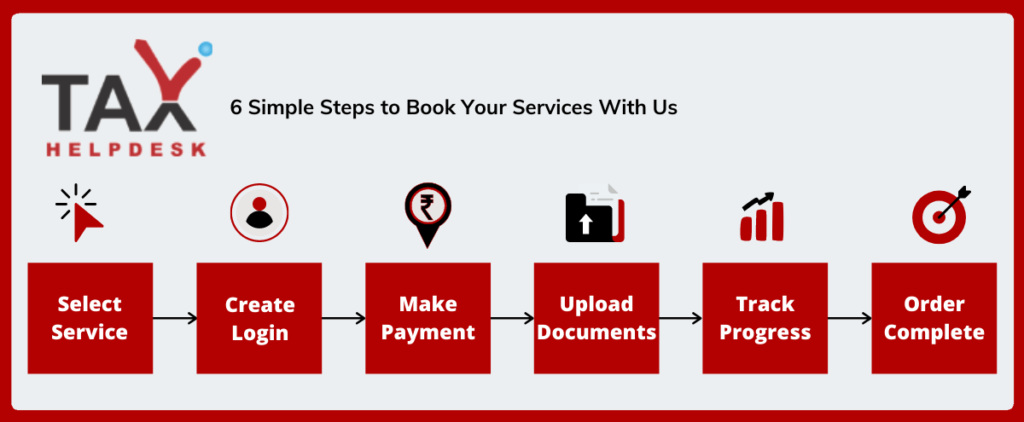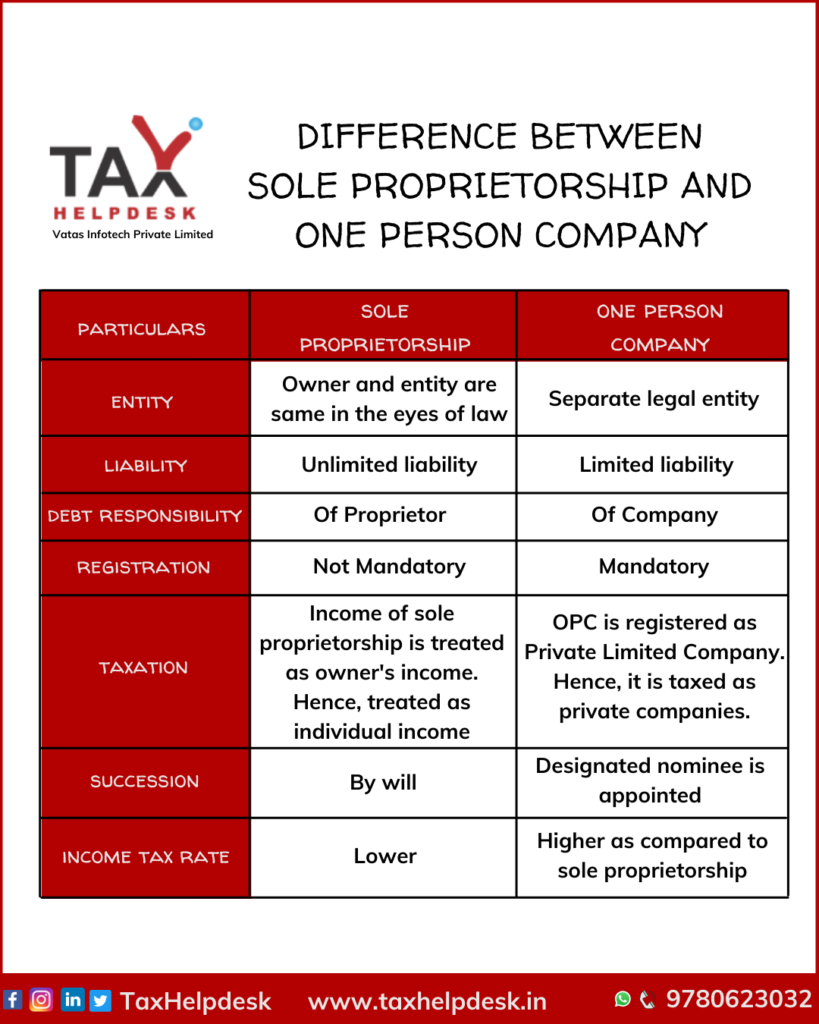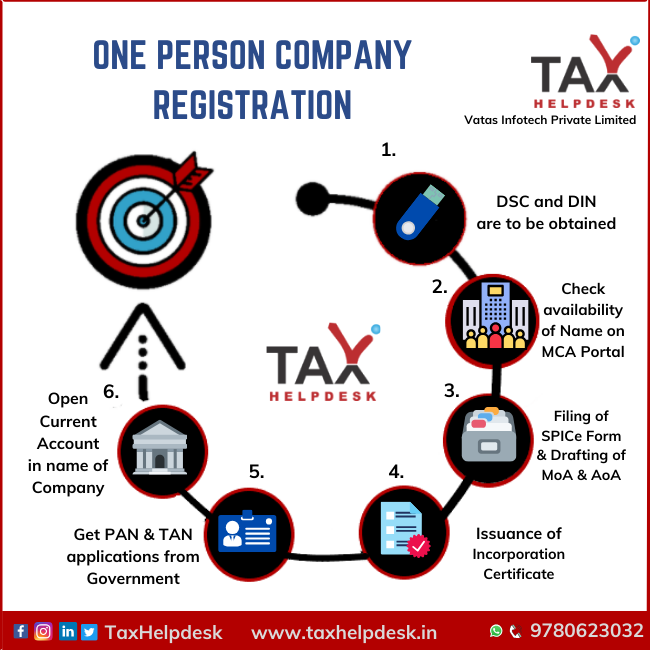Origin & Meaning of One Person Company
The concept of One Person Company, commonly known as OPC was introduced through the Companies Act, 2013. It aims at supporting entrepreneurs who are capable to start a venture by helping them to create a single person entity. OPC, as the name suggests can be started by one person, who acts as both the director as well as shareholder of the company. In such a company, there can be more than 1 director but there cannot be more than one shareholder at any point of time.
Definition of One Person Company
Section 2(62) of the Companies Act, 2013 (“Act”) defines OPC as a company which has only one person as a member.
Classification of One Person Company
As per the governing Act, OPCs are classified into five types depending on the members’ liabilities:

Steps to get your OPC registered through TaxHelpdesk

Once your order is placed, TaxHelpdesk’s dedicated team for reviewing of documents will check the documents uploaded by you within 24 working hours. After reviewing documents, a Tax Expert will be assigned and your order will be processed. Apart from this, you also will be able to check the status of the order in your assigned account.
Conversion of OPC into Private Limited Company
An OPC has all the characteristic of a Private Limited Company. If an OPC exceeds turnover of over Rs. 2 crore or has a paid up share capital of Rs. 50 lacs, then it must be turned into private limited company or public limited company within 6 months from the date of relevant aforesaid transaction.
Difference between Sole Proprietorship & One Person Company

How is an OPC registered?
The process of registration of OPC involves 6 steps, which is as follows:

Documents to be submitted for OPC Registration
Following are the documents to be submitted for OPC Registration:
– Address Proof of the proposed director
– Identity proof of the proposed director
– PAN of the proposed director
– Passport size photos of the proposed director
– NOC from landlord, where the business is situated
How much time does it take it to get OPC registered?
[wptb id=7395]
The above time starts from the submission of all the required documents.
Advantages & Disadvantages attached with OPC
[wptb id=7367]
FAQs
Setting up of an OPC is considered as one of the best mediums for the incorporation of OPC, as it gives limited liability to the owner of the company. Since, the liability of the owner is limited to the capital invested by the owner, the business debts cannot be recovered by attaching the personal assets of the owner.
As per the governing Act, the mandatory minimum requirements are: (a) 1 director, (b) 1 shareholder, (c) 1 nominee, and (d) Words ‘OPC” to be written along with the name of OPC to distinguish it from other companies.
It requires an authorized capital of Rs. 1 lakh.
In an OPC, there can be minimum of 2 directors and maximum of 15 directors.
No, a One Person Company is not required to hold Board meeting like Private Limited Company, but it has to hold Board Meeting once in every half year calendar, the gap between the two Board Meetings shall not be less than 90 days.
If the member dies, the nominee undertakes the affairs of the company and within 15 days of time, the company has to intimate the Registrar of Companies by filing Form INC-4 with prescribed fees.



















Reviews
There are no reviews yet.